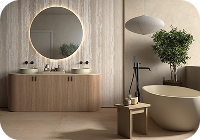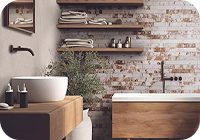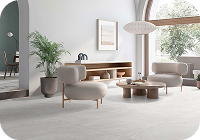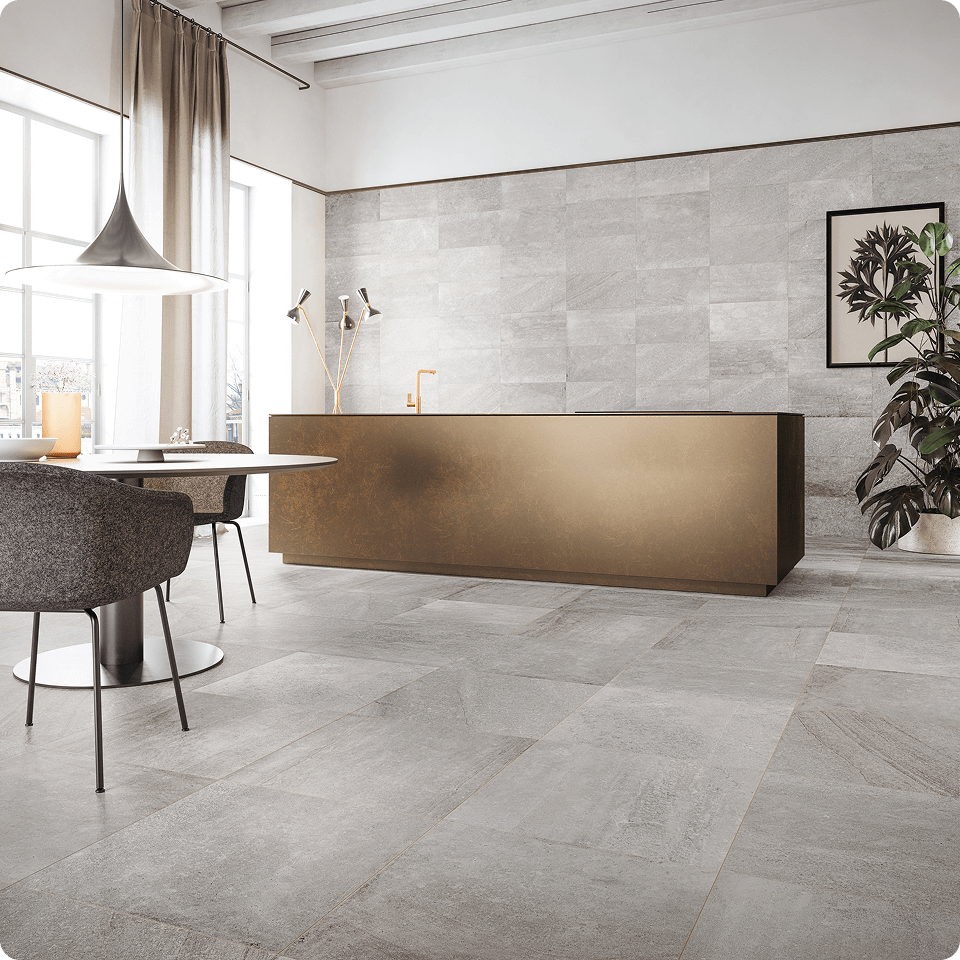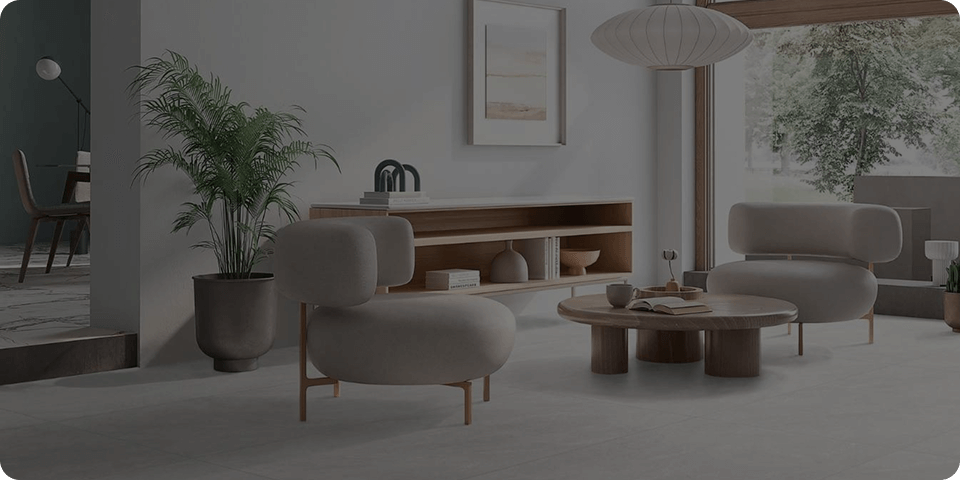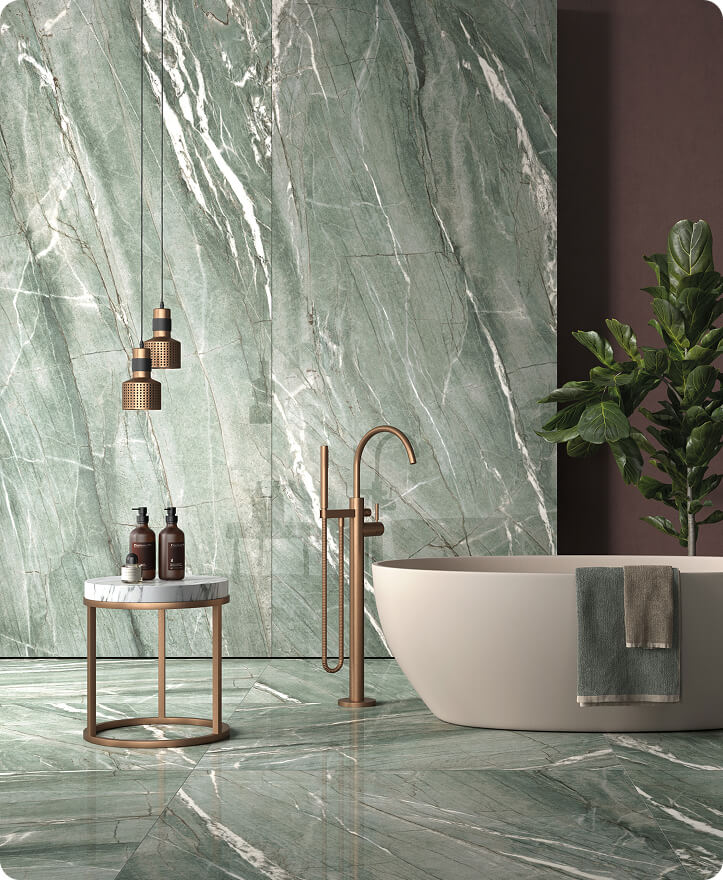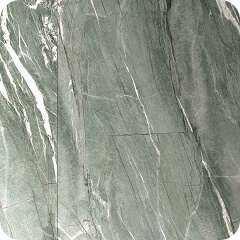Understanding Tile Slip Resistance Ratings: Safety for Commercial Spaces
When choosing commercial flooring, one wrong step can come back to bite you. The wrong tiles can lead to accidents, liability, and expensive rework.
Floor tile slip resistance ratings might not be glamorous, but they’re the real heroes of safe flooring, saving you money and headaches.
These ratings determine how safe a tile is underfoot, particularly in spaces with heavy foot traffic and wet areas like bathrooms, kitchens, pool surrounds, and outdoor walkways.
At Up Spec Suppliers, we’re all about the balance between safety, performance, and style. That’s why we offer a wide range of designer slip-resistant tiles suitable for commercial and residential projects.
We’re here to decipher slip resistance tile ratings and make picking the right Up Spec tile for your space simple and stress-free.
Floor Safety in Commercial Spaces
Safety is non-negotiable in commercial spaces. In busy restaurants, office buildings, and retail stores, slip-resistant tiles can prevent accidents, protecting staff and customers and minimising liability.
Slip resistance refers to a floor’s ability to resist slipping or sliding, particularly in wet or high-traffic areas. It’s assessed through various testing methods, including the Pendulum and Ramp Tests.
Here in Australia, the Australian Building Code and Australian Standards outline specific slip resistance requirements for commercial buildings. Not meeting these standards could expose you to costly accidents, legal risks, and insurance claims.
Choosing tiles with the correct tile slip ratings for Australian standards isn’t about ticking a compliance box; it’s about creating a safe environment for everyone who enters your building.
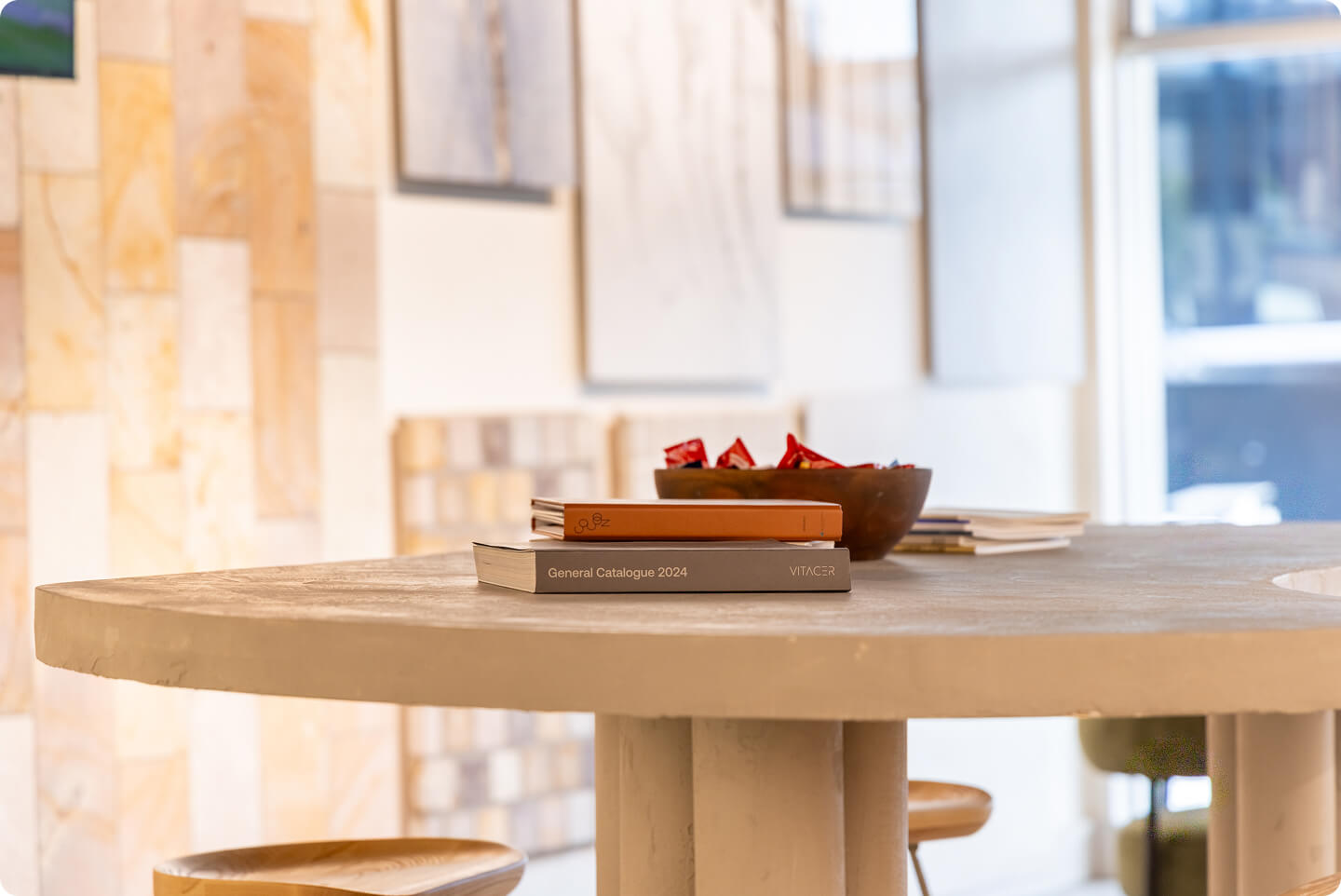
How Are Slip Resistance Ratings Measured and Tested?
Slip resistance tile ratings measure how much grip a tile provides, usually expressed as a number or classification.
These ratings indicate the coefficient of friction—essentially, how much grip or resistance a surface offers against sliding. The higher the coefficient, the less likely someone is to slip.
There are two main testing methods used to determine tile slip resistance ratings.
- Pendulum Test (P Ratings): A swinging arm is fitted with a rubber slider that mimics a shoe sole. The “shoe” is swung across the tile surface, and the amount of friction/resistance it encounters is measured. The result is called the Pendulum Test Value (PTV). The higher the PTV, the more slip-resistant the tile is. The P rating is a classification based on the PTV range, used to simplify slip-resistance categories for wet areas.
- Ramp Test (R Ratings): A person walks on a ramp covered with the tile being tested. The ramp is slowly tilted, and the angle at which the person begins to slip is recorded. The steeper the angle before slipping occurs, the better the grip and the higher the R rating. Think of it as a very controlled banana peel moment!
R Rating Scale
R ratings, determined through the Ramp Test, involve testing new tiles in factory conditions, with people walking on the surface instead of a mechanical device. The R rating provides an excellent picture of how safely a tile performs in real-world wet or slippery conditions, especially if an angle or incline plays a role.
Many European tile manufacturers use R ratings as their primary tile slip resistance rating, so keep this in mind when investigating imported tiles.
Refer to the tile slip rating chart below to find out where R-rated tiles are most suitable.
| R Rating | Slip Resistance | Suitable Areas |
|---|---|---|
| R9 | Low | Dry indoor spaces like living rooms, hallways, and bedrooms |
| R10 | Moderate | Kitchens, bathrooms, and laundry rooms with occasional moisture |
| R11 | Medium to high | Entryways, wet indoor zones, and lightly used commercial spaces |
| R12 | High | Outdoor patios, commercial kitchens, and ramps with frequent moisture |
| R13 | Very high | Industrial and heavy-duty wet areas, including factories, workshops, and pool decks |
P Rating Scale
In Australia, P Ratings are generally the preferred and more widely used method for assessing tile slip resistance. Many building codes and regulations require tiles to meet specific P floor tile slip resistance ratings, especially in public and commercial spaces.
But never fear; P-rated tiles aren’t just about function! With the right choice, you can get the slip resistance you need and create a space that looks exactly like you imagined. Plenty of tiles meet the required tile slip rating for Australian standards in various styles, colours, materials, and textures, so you don’t have to compromise on aesthetics for safety.
What P-rated tiles are best to use where? This tile slip rating chart explains:
| P Rating | PTV Range* | Slip Resistance | Suitable Areas |
|---|---|---|---|
| P0 | <12 | Very low | Not suitable for wet areas |
| P1 | 12-24 | Low | Dry indoor spaces like living rooms |
| P2 | 25-34 | Moderates | Lightly wet areas, such as kitchens and laundries |
| P3 | 35-44 | Good | Wet areas, including bathrooms and entryways |
| P4 | 45-54 | High | Outdoor patios, commercial kitchens, and pool surrounds |
| P5 | >55 | Very high | Heavy-duty wet zones like pool decks, public showers, and ramps |
*The Pendulum Test Value (PTV) measures the exact slip resistance value from the Pendulum Test, while the P rating is the broader classification that groups those values into categories from P0 to P5.
Tile Variation and Appearance
Tile variation and appearance are all about those natural shifts in colour, pattern, and texture that give flooring depth and character.
When it comes to textured finishes, these don’t just add visual interest; they often provide enhanced grip.
For example:
Choose carefully; too much variation in tile colour and pattern can make puddles or hazards harder to spot.
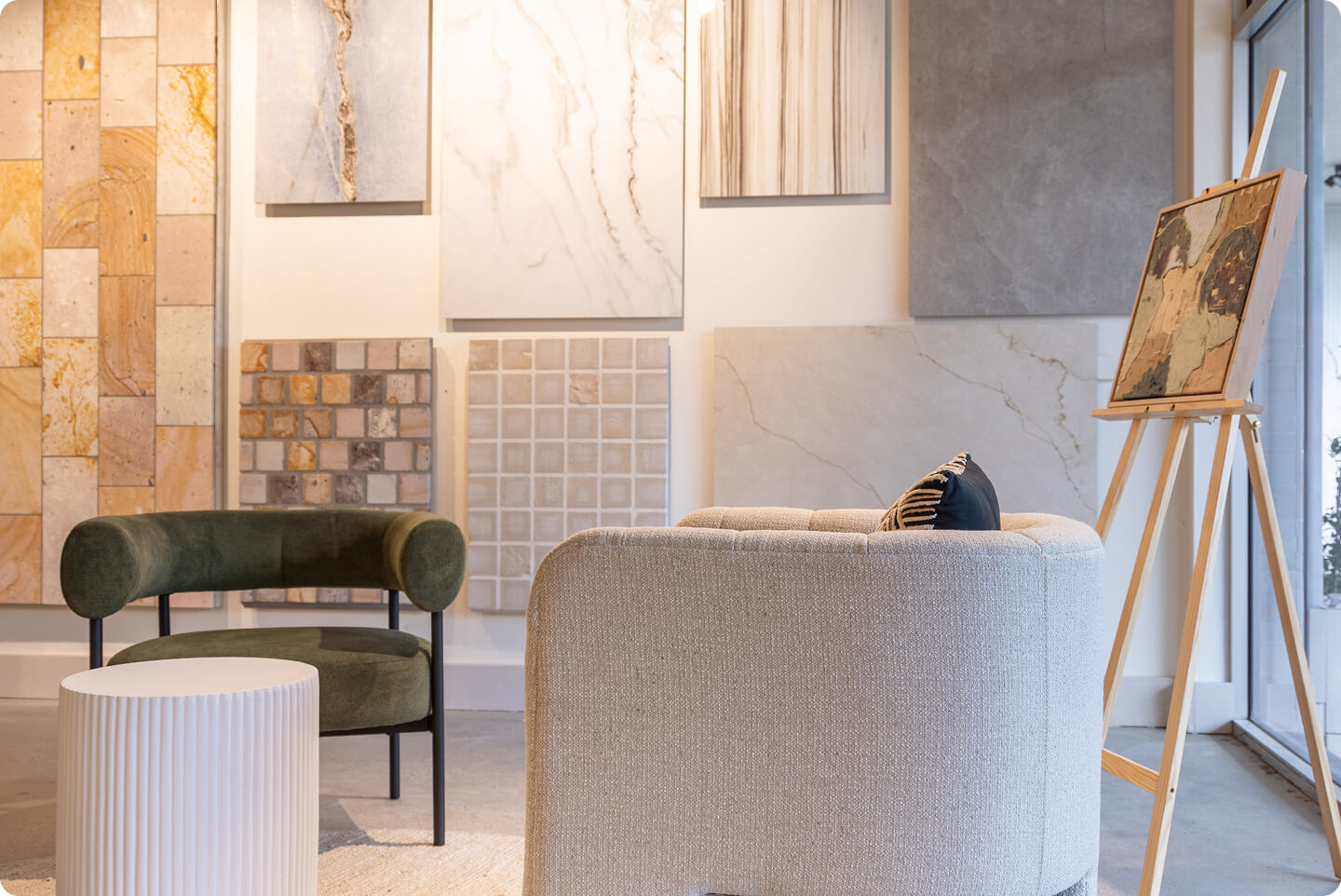
Choosing the Right Slip-Resistant Tiles
Choosing the right slip-resistant tiles comes down to material, texture, budget, and maintenance requirements.
Porcelain tiles with textured finishes have high floor tile slip resistance ratings. Porcelain is also incredibly tough and low in porosity, meaning it doesn’t absorb water, it resists wear, and it handles heavy foot traffic.
Natural stone-look tiles that replicate bluestone, travertine, and limestone bring both beauty and safety to the floor. Their textured surfaces don’t just look like the real deal; they also offer excellent slip resistance. And all without the high price tag and high-maintenance routine of actual stone.
As well as choosing the tile material and finish, make sure the tile’s slip resistance rating suits the space.
- Bathrooms and Kitchens: P3, P4, R10, or R11 rating.
- Outdoor Areas and Pools: P4, P5, R11, R12, or R13 rating.
- Commercial Spaces: P5, R12, or R13 rating.
Maintenance and Upkeep
Without proper care, even the highest-rated tiles can betray your trust and your footing!
Dirt, grime, and inferior cleaning products can reduce traction and increase slipping risk. The good news? A little maintenance goes a long way. Not only will it keep floors safer, but it’ll also help tiles last longer—something your clients will appreciate.
It’s worth recommending a clear tile care plan for your clients, facility managers, or end users.
Always refer to the manufacturer’s maintenance guidelines, and pass on the following tips.
- Sweep regularly using a soft-bristle broom or vacuum to prevent scratches.
- Mop with a pH-neutral cleaner and warm water. Avoid bleach or harsh chemicals that can damage the slip-resistant finish.
- Rinse well with clean water to avoid slippery residue.
- Dry thoroughly with a towel or let air dry to maintain traction.
- For a deeper clean, particularly of textured surfaces, gently scrub with a soft-bristle brush or non-abrasive pad.
- Tackle stubborn stains with a paste of baking soda and water, scrubbing gently and rinsing.
Explore Slip-Resistant Tiles at Up Spec Suppliers
At Up Spec Suppliers, safety never means sacrificing style. Our slip-resistant tile collection features R and P-rated tiles in porcelain, natural stone-look, and concrete-look designs to suit contemporary, classic, coastal, and mid-century modern spaces alike.
Whether you’re working on a home bathroom reno, a busy commercial kitchen, or a high-traffic outdoor area, we’ve got stylish, slip-smart options that look good and work hard.
Want to see what’s possible? Explore our range for inspiration, then sign up to collaborate with us in the Projects Portal.
If you’re ready to get specific, visit the Contact Us page, and we’ll be in touch shortly!
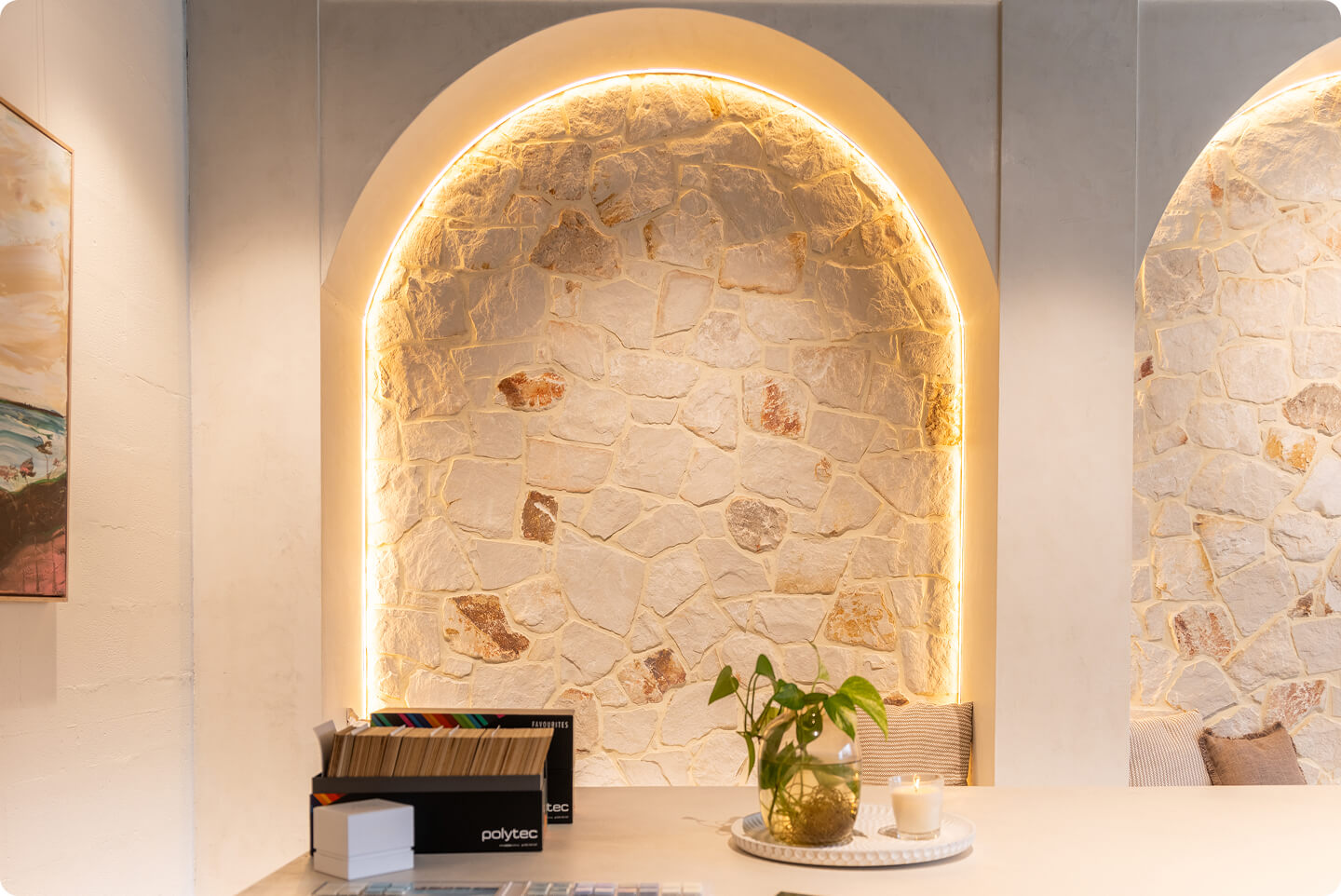
FAQs About Tile Slip Resistance Rating
What Is a Tile Slip Resistance Rating?
A tile slip resistance rating is a safety score that tells you how well a tile can grip underfoot, especially when wet. Tiles are generally rated P or R based on how they perform in the Pendulum Test (for wet conditions) or the Ramp Test (for oily or inclined surfaces).
How Are Slip-Resistant Tiles Tested?
Slip-resistant tiles are tested in two ways. Both measure how slippery a tile is.
In the Pendulum Test (for P ratings), a mechanical swinging arm mimics a heel strike, and the amount of resistance it encounters is measured. In the Ramp Test (for R ratings), a person walks on the tiled surface as it’s gradually tilted, and the angle at which they begin to slip is recorded to determine the tile’s slip resistance.
What Is an R Rating for Tiles?
An R rating measures how slip-resistant a tile is when someone walks on it. It comes from the Ramp Test, where a tester walks on a tile-covered ramp that’s gradually tilted. The higher the angle they can walk without slipping, the higher the R rating.
Which Tiles Are Best for Wet Areas?
For wet areas like bathrooms, laundries, outdoor patios, and pool surrounds, tiles with higher slip resistance, such as P4, P5, or R11–R13 ratings, are best. These tiles reduce the risk of slips and keep the area safer under wet conditions.
Choose Safer Tiles with Up Spec Suppliers Today
Choosing the right tile slip resistance rating means safer flooring for homes and businesses. But! Slip-resistant doesn’t mean style-resistant!
Our extensive tile range proves you don’t have to compromise on looks to stay safe.
Explore the Up Spec range of bespoke, designer tiles with high tile slip resistance ratings online today. Then, call 0401 546 621 or submit this online form to connect with an Up Spec Supplier team member.
We’re ready to help you find the safest, most stylish tile solution for your project!

